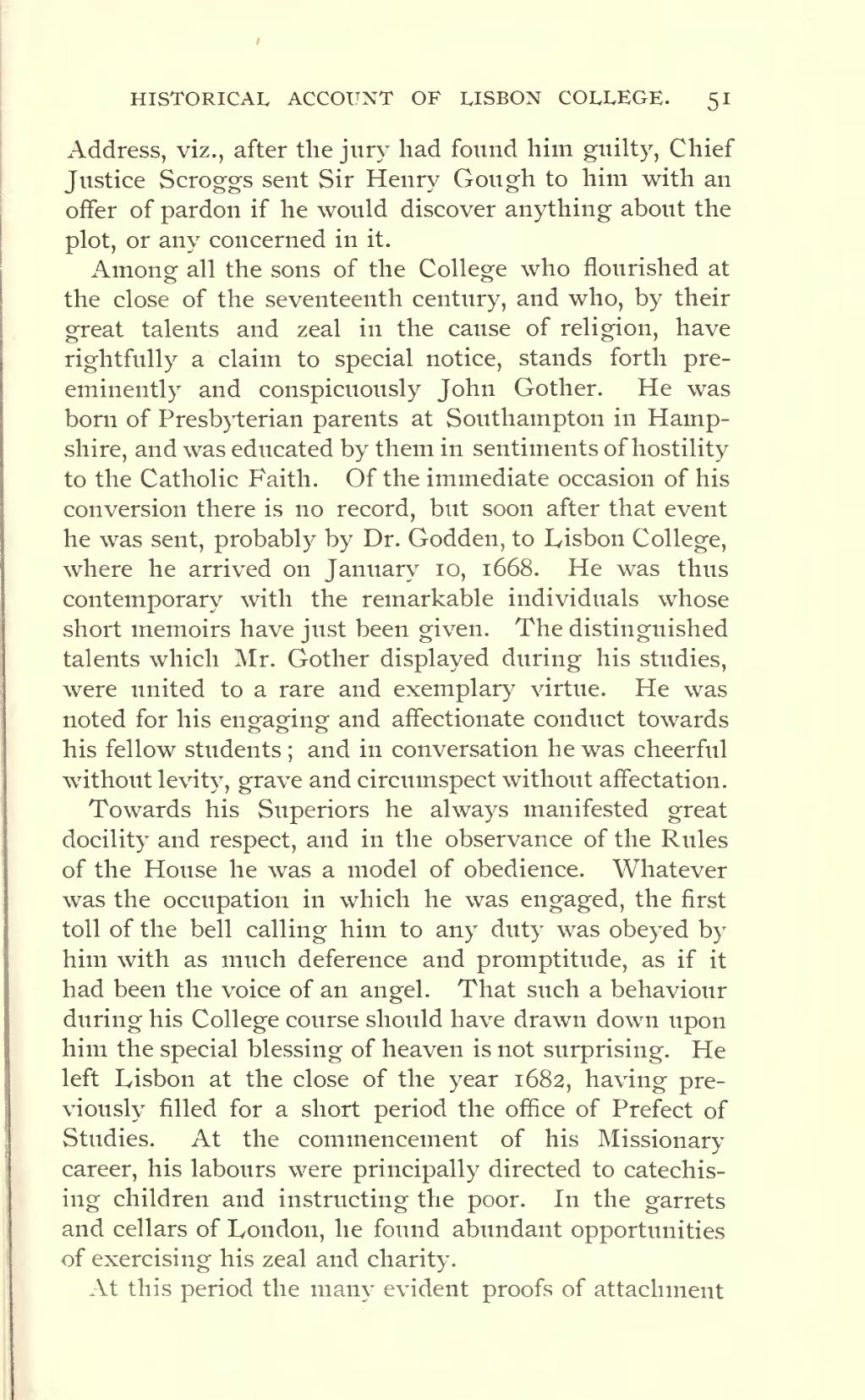Address, viz., after the jury had found him guilty, Chief Justice Scroggs sent Sir Henry Gough to him with an offer of pardon if he would discover anything about the plot, or any concerned in it.
Among all the sons of the College who flourished at the close of the seventeenth century, and who, by their great talents and zeal in the cause of religion, have rightfully a claim to special notice, stands forth pre eminently and conspicuously John Gother. He was born of Presbyterian parents at Southampton in Hampshire, and was educated by them in sentiments of hostility to the Catholic Faith. Of the immediate occasion of his conversion there is no record, but soon after that event he was sent, probably by Dr. Godden, to Lisbon College, where he arrived on January 10, 1668. He was thus contemporary with the remarkable individuals whose short memoirs have just been given. The distinguished talents which Mr. Gother displayed during his studies, were united to a rare and exemplary virtue. He was noted for his engaging and affectionate conduct towards his fellow students; and in conversation he was cheerful without levity, grave and circumspect without affectation.
Towards his Superiors he always manifested great docility and respect, and in the observance of the Rules of the House he was a model of obedience. Whatever was the occupation in which he was engaged, the first toll of the bell calling him to any duty was obeyed by him with as much deference and promptitude, as if it had been the voice of an angel. That such a behaviour during his College course should have drawn down upon him the special blessing of heaven is not surprising. He left Lisbon at the close of the year 1682, having previously filled for a short period the office of Prefect of Studies. At the commencement of his Missionary career, his labours were principally directed to catechising children and instructing the poor. In the garrets and cellars of London, he found abundant opportunities of exercising his zeal and charity.
At this period the many evident proofs of attachment
